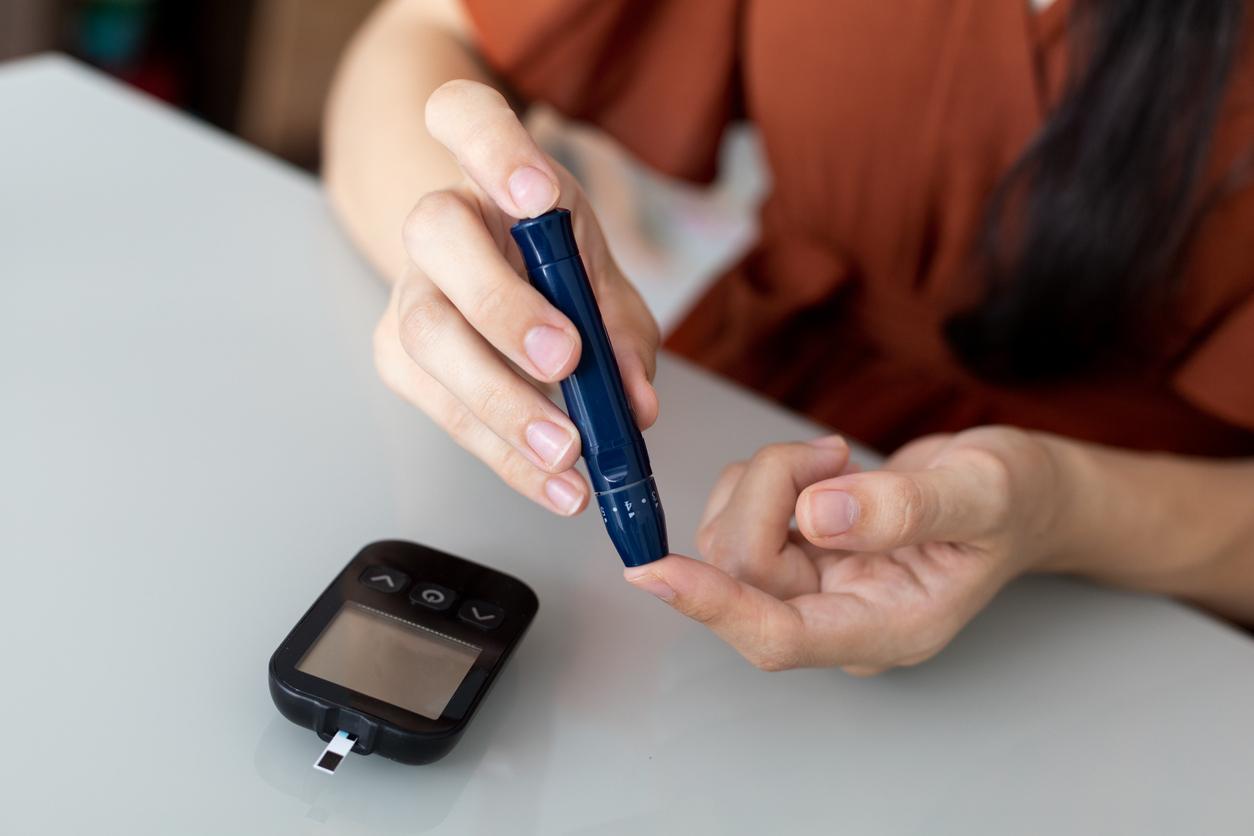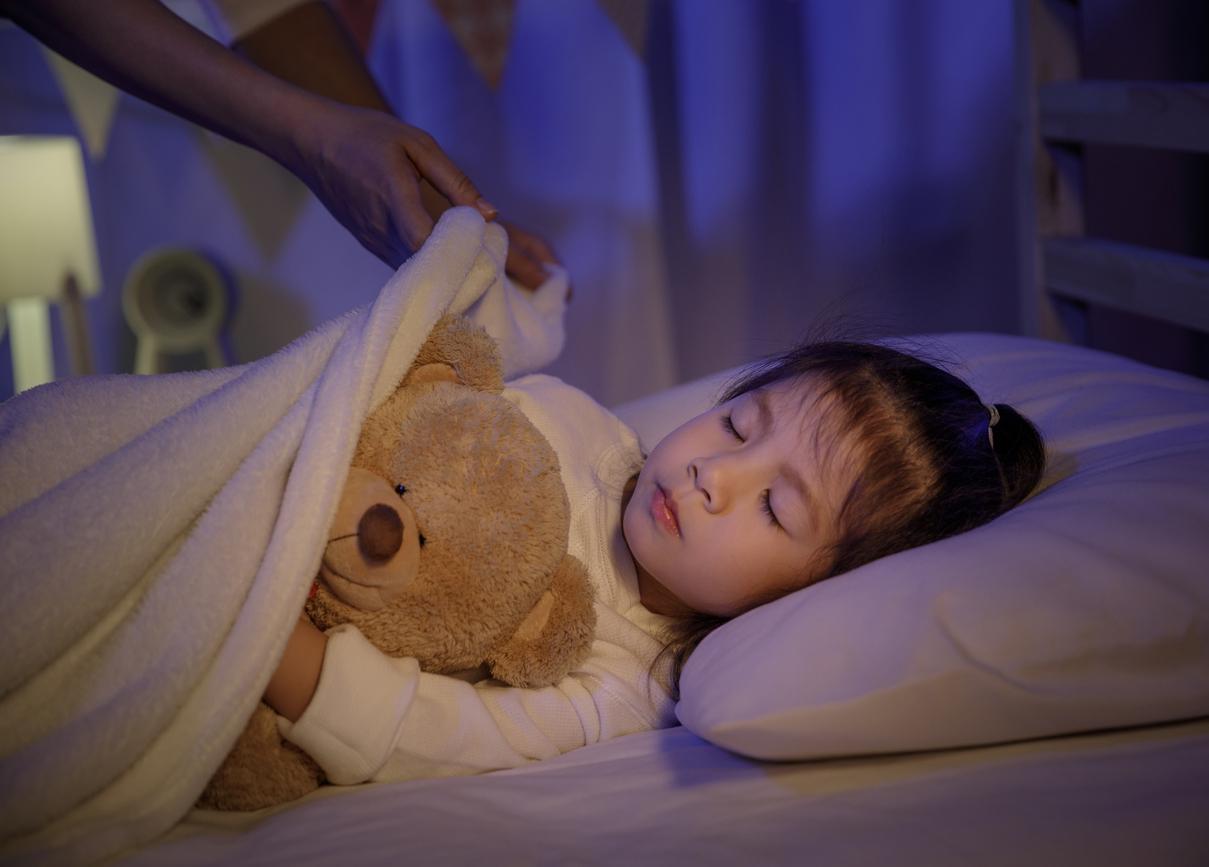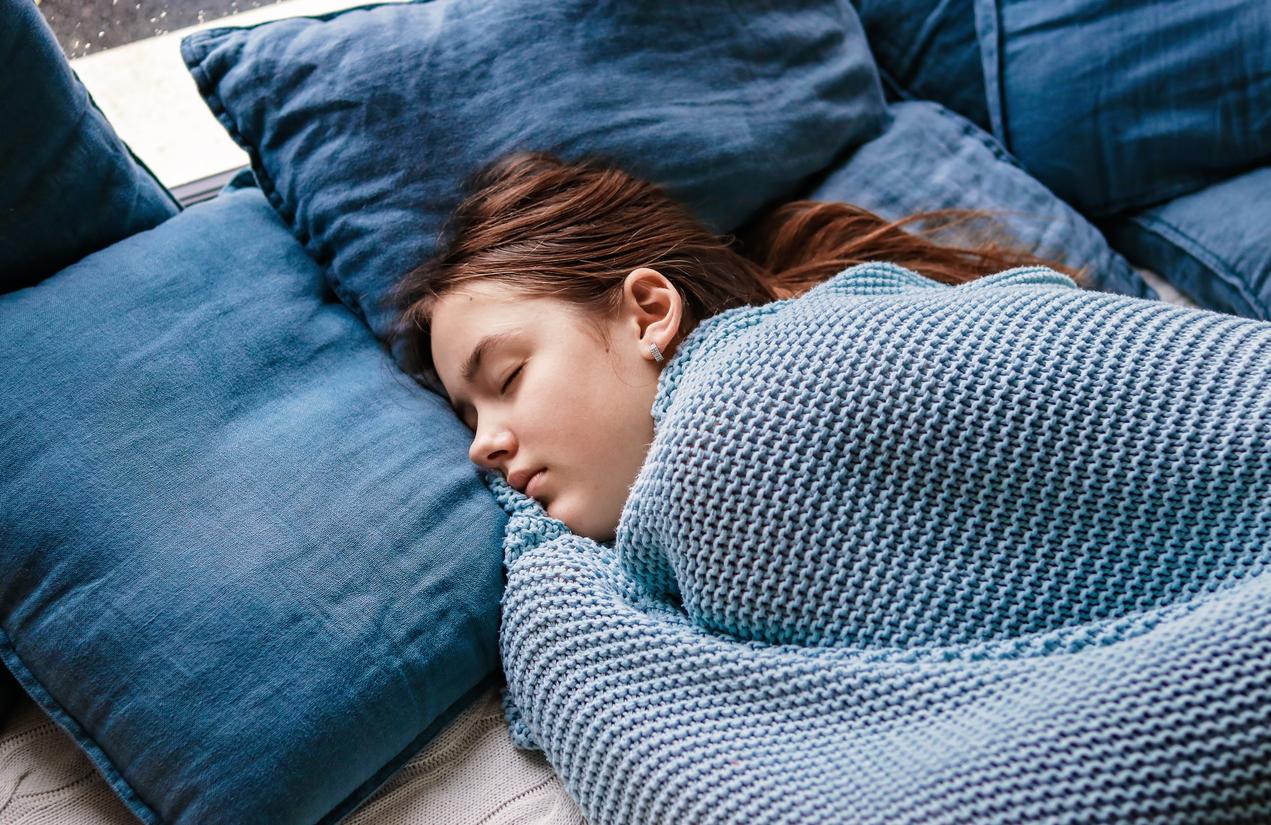A new study from the Mayo Clinic links poor sleep to increased belly fat. According to this study, which has just been published, people who do not get enough sleep have up to 9% increase in abdominal fat and an 11% increase in abdominal visceral fat.
Visceral fat is fat that is deposited deep inside the abdomen and around internal organs. It is responsible for heart and metabolic diseases. For this study, the researchers investigated the effects of sleep deprivation on healthy, non-obese people. They found that with the restriction of sleep hours, study participants consumed more calories while their energy expenditure remained unchanged. They gained more weight than the control group, which did not accumulate sleep debt, but above all, visceral abdominal fat deposits increased. However, several studies have already shown that an increase in waist circumference increases the risk of cardiovascular disease, type 2 diabetes and even cancer.
3 bad nights and morale fails
Another American study, published in the specialized journal Annals of Behavioral Medicinecalculated that the psychological impact of lack of sleep would be greatest after 3 insufficient nights. To reach this conclusion, the American researchers worked with a group of 2000 volunteers who filled out a “sleep diary” for 8 consecutive days. The objective is to assess their physical and mental state. During the observation period, nearly half (42%) of the volunteers had (at least) one “bad night”, with a shorter sleep time – at least 1h30 – compared to usual.
But the researchers noticed that the psychological symptoms of lack of sleep (irritability, nervousness, feelings of anger…) appeared from the first “bad night” and that they reached a peak after 3 ” bad nights”. As for the physical symptoms of lack of sleep (respiratory problems, pain, etc.), they came later to reach a peak after 6 days of “bad nights”.
“Many people think that we can pay off a debt of sleep accumulated during the week during the weekend: our study shows precisely that a single insufficient night can have an impact on the daily functioning of the person.“, analyze the researchers. According to them, “a ‘good night’s sleep’ lasts at least 6 hours.
How many hours should we sleep?
Did you know that :
- We spend more than 26 years sleeping, on average?
- The duration of our nights fell below 7 hours?
- 1 out of 3 car accidents is caused by drowsiness?
- 35 to 40% of French people snore occasionally or permanently?
- 15 to 20% of French people are chronic insomniacs?
- The risk of cardiovascular disease is reduced by 48% when you take 1 to 2 naps a week?
53% of French people questioned in the 2020 edition ofINSV/MGEN survey believe that the topic of sleep is a more important health topic than 20 years ago. It also shows an increase in the use of screens in the evening and a large number of nocturnal awakenings caused by telephones. 16% of French people and 28% of 18-34 year olds admit to being woken up at night by the ringtone of their smartphone or an SMS. And almost half answer it most often. “The sentinel effect, which consists of remaining on standby for fear of missing out on information (tweets, comments on social networks, text messages, etc.), contributes to accentuating sleep debt among the youngest”, worries Dr. Marc Rey, sleep specialist.
The fault (also) of chronic stress
But exposure to light from screens at night is not the only culprit. “The sources of anxiety and chronic stress favor sleep disorders, imbalance of the sleep/wake rhythm and insomnia with the consequences that we know: reinforcement of anxiety and increased risk of depression and relationship with others”, adds Dr. Marie-Françoise Vecchierini. However, a number of measures can be implemented for preserve sleep adults and that of children.
Sleeping pills are not the solution
They alter the quality of sleep and have deleterious effects on health, as revealed by an English study of 100,000 people, divided into two groups, over an average period of 7 years. Anxiolytics and sleeping pills were taken by about a third of the subjects, the others took nothing. “The results are relentless” , announces Dr. Patrick Lemoine: the risk of mortality is almost twice as high in the subjects of the first group. Another French study has shown that taking benzodiazepines for three months increases the risk of developing Alzheimer’s by 30 to 40%. This goes from 60 to 80% with a hold exceeding 6 months. Moreover, a quarter of a bromazepam tablet taken at 7 p.m. doubles the number and duration of apneas in the sleep. “When we know that apnea syndrome sleepconsiderably increases the risk of infarction, stroke, heart failure, arterial hypertension, Alzheimer’s, the conclusion is obvious…” concludes Patrick Lemoine.
Sources:
- Effects of Experimental Sleep Restriction on Energy Intake, Energy Expenditure, and Visceral ObesityJournal of the american college of cardiology, April 2022
- Naturally Occurring Consecutive Sleep Loss and Day-to-Day Trajectories of Affective and Physical Well-BeingAnnals of behavioral medicine, July 2021
Read also :
- Is weight gain linked to lack of sleep?
- 10 things not to do before bed to sleep well
- 12 tips for sleeping well
- Infographic: sleep needs by age
- These foods that promote sleep































